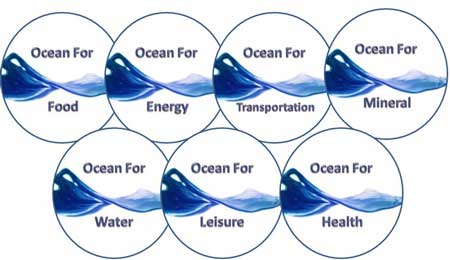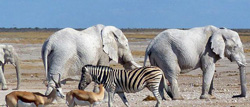
African Blue Economy suffers under weak legal, policy, regulatory and institutional framework

Africa Renewal – Africa has 38 coastal and island states and a coastline of over 47,000 km, and hence presents an enormous opportunity for the continent to develop the sectors typically associated with the blue economy, said Cyrus Rustomjee, a blue economy expert and a senior fellow at the Centre for International Governance Innovation.
“Expanding fisheries, aquaculture, tourism, transportation and maritime and inland ports can help to reduce African poverty and enhance food and energy security, employment, economic growth and exports, ocean health and sustainable use of ocean resources,” said Dr. Rustomjee.
He said more than 12 million people are employed in fisheries alone, the largest of the African blue economy sectors, providing food security and nutrition for over 200 million Africans and generating value added estimated at more than US$24 billion, or 1.26% of the GDP of all African countries.
At a Blue Economy conference late last year in Nairobi, Kenyan President Uhuru Kenyatta expressed concern over the “massive pollution of water bodies; the evident overexploitation of water resources and their related biodiversities, as well as the specific challenge of insecurity, more so in the high seas.”
Pre-conference advocacy by Kenya, Canada and Japan, the main organisers of the event, focused on many issues central to Africa’s development, including food security for vulnerable groups and communities, malnutrition, sustainable food production and gender equality in blue economy industries.
Kenya’s foreign affairs cabinet secretary, Monica Juma, said the discussions were “dedicated to realizing the untapped potential found in our oceans, seas, lakes and rivers; and focused on integrating economic development, social inclusion and sustainability which promotes a blue economy that is prosperous, inclusive and sustainable.”
A recurring theme at the conference was that the blue economy could boost a country’s economic growth and environmental protection and, by extension, help achieve the Sustainable Development Goals of the UN’s 2030 Agenda.
According to Macharia Kamau, the principal secretary in Kenya’s Ministry of Foreign Affairs, overall the conference presented “immense opportunities for the growth of our economy, especially sectors such as fisheries, tourism, maritime transport and offshore mining.
“The strategic importance of the blue economy to trade is clear, noted the International Maritime Organization, a specialised agency of the United Nations responsible for regulating shipping. For instance, up to 90% of global trade facilitation by volume and 70% by value is carried out by sea.
One challenge is that the oceans and seas absorb about 25% of the extra carbon dioxide emissions added to earth’s atmosphere through the burning of fossil fuels. Oil and gas remain major sources of energy, with approximately 30% of production carried out offshore.
Identified challenges in the blue economy include a lack of shared prosperity, maritime insecurity and unsustainable human activities around and in oceans, seas, lakes and rivers, including overfishing.
Other challenges are pollution, invasive species and ocean acidification, which lead to biodiversity loss and compromise human health and food security. In addition, a weak legal, policy, regulatory and institutional framework and poorly planned and unregulated coastal development exacerbate existing challenges in many coastal countries.













































